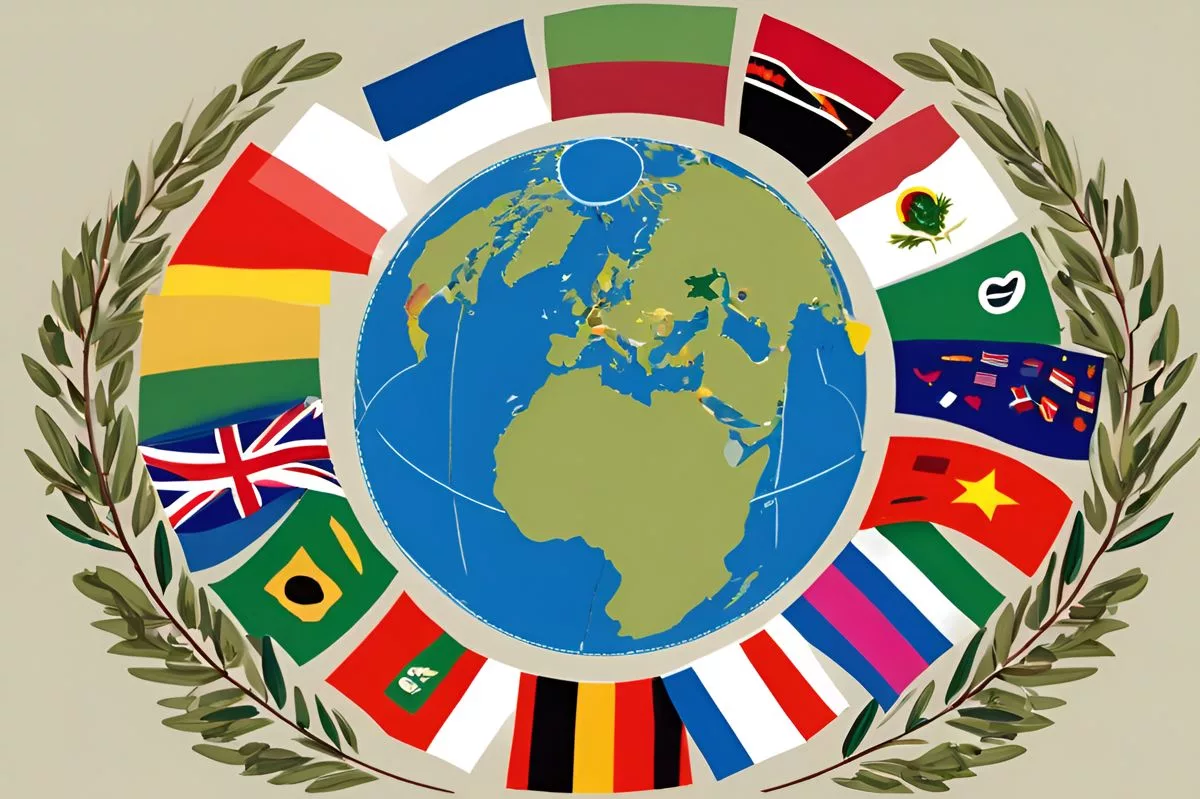Africa’s critical minerals are treasures that can power the world’s shift to green energy. With 30% of these minerals found in Sub-Saharan Africa, they can spark jobs and boost the economy if processed locally. South Africa is leading the way, aiming to turn its mineral wealth into sustainable growth while ensuring fairness for its people. By teaming up with the U.S. and focusing on responsible mining practices, Africa hopes to create a brighter future filled with opportunity and innovation.
What is the significance of Africa’s critical minerals?
Africa’s critical minerals hold immense global significance due to their role in renewable energy technologies. With 30% of the world’s reserves located in Sub-Saharan Africa, these minerals can drive economic growth, create jobs, and promote sustainable development through local processing and beneficiation practices.
The Global Significance of Critical Minerals
In today’s world, where environmental sustainability is increasingly pivotal, discussions around critical minerals have assumed paramount importance. These essential elements underpin the technologies driving the global shift towards renewable energy. This significance was underscored at the Business Council for International Understanding (BCIU) and Prosper Africa African Minerals Forum, where President Cyril Ramaphosa provided thought-provoking insights.
Notably, the forum was held four months after South Africa’s national general elections, which led to the formation of a Government of National Unity. This coalition, comprising ten political parties, marked a rare display of political unity focused on driving structural reforms across key economic sectors, including mining, energy, and manufacturing. Such unity has laid the groundwork for discussions aimed at fostering economic growth and sustainable development.
President Ramaphosa highlighted South Africa’s commitment to combating climate change and reducing greenhouse gas emissions. Central to this effort is the country’s Just Energy Transition Plan, which aims to transition from coal to renewable energy sources. This plan ensures that communities impacted by the shift receive fair economic opportunities and social inclusion, thereby positioning South Africa—and Africa at large—as critical players in the global minerals sector.
Strengthening U.S.-Africa Collaboration
The U.S. emerges as a significant partner, particularly in advanced mining technologies, automation, and sustainability practices. Ramaphosa advocated for stronger ties with American companies and institutions to foster technological progress, improve supply chain efficiencies, and attract investments in South Africa’s mining industry. Such collaborations have the potential to unlock Africa’s vast mineral wealth.
The United Nations Secretary-General’s position paper on Critical Energy Transition Minerals emphasizes the importance of beneficiation, benefit-sharing, local value addition, and economic diversification. Africa is home to a substantial share of the world’s proven critical mineral reserves, with 30% located in Sub-Saharan Africa alone. South Africa, in particular, holds significant deposits of platinum group metals, manganese, vanadium, and chromium—key elements for advanced technological applications.
While this mineral wealth offers tremendous opportunities, it also presents challenges. Historically, Africa has been plagued by the colonial-era legacy of resource exploitation. Today, most African nations export their minerals in raw form, thereby missing out on the economic benefits of value-added processing. Ramaphosa pointed to studies suggesting that extracting select minerals could increase the region’s GDP by over 12% by 2050. However, emphasizing beneficiation and local processing could yield exponentially greater economic returns.
Economic Potential and Challenges
Ramaphosa outlined the potential economic benefits, noting that the region could generate an additional USD 24 billion annually in GDP and create 2.3 million jobs through investments in mining beneficiation and domestic processing. He cited SASOL, South Africa’s leading petrochemical company, as an example of innovation in green hydrogen technologies and research and development, showcasing the country’s potential for technological advancements.
The global automotive industry’s transition towards electric and new energy vehicles presents another opportunity for South Africa. Leveraging its existing expertise in automotive manufacturing, the country aims to attract leading manufacturers to produce green vehicles locally. Despite these strides, South Africa still needs to improve the ratio of beneficiated to primary products in its exports to maximize economic gains.
Projections by the International Monetary Fund suggest that the global market for critical minerals will reach approximately USD 16 trillion over the next 25 years. Africa, well-positioned to meet this demand, must adopt a supportive policy framework for the critical minerals sector. Ramaphosa proposed a five-pronged policy approach: simplifying regulations, supporting research and development in mining technologies, investing in workforce skills, improving transport and logistics, and incentivizing investment.
A Vision for Sustainable Development
South Africa’s beneficiation strategy aims to transform its mineral wealth into a national competitive advantage. The UN Secretary-General’s paper highlights that Critical Energy Transition Minerals have the potential to revolutionize economies, create green jobs, and promote sustainable development. It is crucial to ensure inclusivity in both mineral-producing countries and their end destinations.
The extraction and processing of critical minerals must provide decent employment opportunities for local communities. Governments and mining companies must work together to eliminate practices such as child and forced labor and human rights abuses. Supporting local beneficiation will enable economies to diversify and industrialize, while environmental safeguards and sustainable practices must take precedence.
Given the finite nature of these resources, there is a pressing need to focus on creating lasting inter-generational equity rather than short-term gains. Critical minerals are more than mere commodities; they are integral to addressing some of the world’s most urgent challenges, including climate change, energy insecurity, and food scarcity. They fuel technologies that hold the promise of a more equitable world.
Strategic collaborations and supportive policies are essential to meet global market demands and drive sustainable development. Ramaphosa’s appeal to U.S. companies and investors underscores South Africa’s readiness to embark on this transformative journey, leveraging its rich mineral resources to catalyze growth and development.
“`markdown
What are Africa’s critical minerals and why are they important?
Africa’s critical minerals are essential elements that play a crucial role in renewable energy technologies. With 30% of the world’s reserves found in Sub-Saharan Africa, these minerals can drive economic growth, create jobs, and promote sustainable development when processed locally.
How is South Africa leading in the development of critical minerals?
South Africa is committed to transforming its mineral wealth into sustainable growth through initiatives like the Just Energy Transition Plan, which aims to shift from coal to renewable energy. The country is focusing on responsible mining practices and local beneficiation to ensure fairness for its communities and promote economic opportunities.
What role does the U.S. play in Africa’s critical minerals sector?
The U.S. is emerging as a key partner in Africa’s critical minerals sector by providing advanced mining technologies and sustainability practices. Strengthening ties with American companies could enhance technological progress, improve supply chain efficiencies, and attract significant investments in South Africa’s mining industry.
What economic benefits can be gained from Africa’s critical minerals?
Investments in mining beneficiation and domestic processing in Africa could generate an additional USD 24 billion annually in GDP and create approximately 2.3 million jobs. By focusing on local value addition, African nations can maximize the economic returns from their mineral wealth.
What challenges does Africa face in the critical minerals sector?
Historically, Africa has dealt with the legacy of resource exploitation, often exporting raw minerals and missing out on economic benefits. There is a pressing need to improve the ratio of beneficiated to primary products in exports and ensure that the extraction and processing of minerals provide decent employment opportunities for local communities.
How can Africa ensure sustainable development through its critical minerals?
To achieve sustainable development, Africa must adopt supportive policies that encourage local beneficiation and industrialization while prioritizing social and environmental safeguards. This includes creating lasting inter-generational equity, eliminating human rights abuses, and collaborating strategically with global partners to meet market demands.
“`












